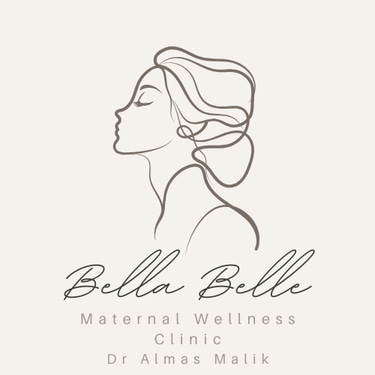Where Science Meets Holistic Women’s Health
How to Expose Undercover Emotional Abuse With the Right Questions
Learn how to recognise emotional abuse, especially postpartum. Explore questions to uncover hidden control, and understand its devastating effects on women's health
WELLNESS
Dr Almas Malik
7/20/20253 min read


Your Health Reflects Your Life Story
A woman’s health is essentially a walking illustration of her life story
What you do, how you feel, how you are made to feel, who you interact with, your life experiences, how you spend your time and the activities that you do; they all shape your physical, mental, sexual and reproductive health
More than the Absence of Disease: What Health Really Means
Health is not just about avoiding illness. It includes:
Optimised body biology
Clarity of thought
A heart at peace, not weighed down by guilt, resentment, anger, sadness or anxiety
The Biological Cost of Emotional Abuse in Women
The World Health Organisation estimates that 1 in 3 women are subjected to domestic abuse in their lifetime
Persistent emotional stress is believed to:
Suppress immune system function
Increase the risk of endometriosis and fibroids
Disrupt reproductive hormone balance
Where there is abuse, there can be gynaecological disease
Understanding Covert Emotional Abuse
Unlike physical abuse, covert emotional abuse can be:
Subtle
Hidden
Difficult to Identify
Confusing to challenge
Despite its invisibility, coercive control is a criminal offence in England
Why It Can Be Hard to Recognise
Emotional abuse often unfolds gradually and may be masked as concern or care. It can take time to:
Recognise
Acknowledge
Accept
Signs of Covert Abuse in the Postpartum Period
Examples of emotional abuse after childbirth include:
Preventing you from spending time with your baby
Stopping you from picking up your baby
Stopping you from feeding your baby
Blocking you from breastfeeding
Stopping you from parenting in a sensitive and responsive way
Ask Yourself These Questions to Reveal Emotional Abuse
Use these questions to reflect on your relationship:
Does your partner stop you from seeing friends or family or persuade you that they do not care about you?
Does your partner monitor your time?
Does your partner take control of aspects in your everyday life, such as where you can go, who you can see, what you can wear, when you can sleep? It may be presented as being in your best interests
Does your partner repeatedly put you down, tell you that you are worthless or call you names, disguising insults as jokes?
Does your partner control how much money you have, how you spend it, or control your bank accounts, investments, mortgages, benefit payments or force you to take on debt or limit your access to finances?
Does your partner deprive you of your basic needs?
Does your partner encourage you to neglect or abuse your children to encourage self blame, so that you do not report?
Does your partner stop you using birth control, refuse to use a birth control method, force you to become pregnant, force you to get an abortion, force you to undergo IVF or stop you from accessing IVF?
Does your partner undermine your accomplishments, criticise your parenting or professional work in front of others?
Block you from getting a job or studying?
Does your partner blame you for everything?
Does your partner stand over you and invade your personal space?
Does your partner share personal information with others in an attempt to humiliate or undermine you?
Does your partner blame you for his actions? Does he tell you it's your own fault?
Reflect on How You Feel
Ask yourself:
Would I be ok seeing someone treat my child or friend in this way?
Have I felt emotionally drained or less confident since this relationship started?
This Is Emotional Abuse
If you relate to any of the above, may be experiencing covert emotional abuse
It is a criminal offence
it can be reported to the police
It can be referred to the Crown Prosecution Service
A convicted abuser can be sentenced up to 5 years in prison, fined or both
In an Emergency
Dial 999 or text 0800 112 999
If the perpetrator is with you and you can not speak, dial 999, then 55 when prompted. The police will locate you
Remember
Nobody deserves to be abused. Recognize the signs and seek help
Further Help Sources
The following resources can offer support:


